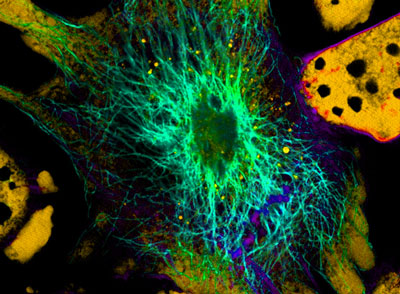Neuroblastoma cells drain immune system’s batteries
Posted: 3 August 2015 | Victoria White
Cancer cells in neuroblastoma contain a molecule that breaks down a key energy source for immune cells, leaving them too drained to fight the disease…


Cancer cells in neuroblastoma contain a molecule that breaks down a key energy source for the body’s immune cells, leaving them too physically drained to fight the disease, according to new research.
Cancer Research UK-funded scientists have discovered that the cells in neuroblastoma produce a molecule that breaks down arginine, one of the building blocks of proteins and an essential energy source for immune cells.
This molecule, called ‘arginase’, creates a huge dip in the level of arginine found in the area around the tumour. As soon as the body’s immune cells get close to the cancer, the sudden lack of their favourite energy source makes them lethargic and ineffective.
Neuroblastoma cells have a molecule on their surface that marks them out as different from healthy cells. This had led to hopes that the immune system might be trained to recognise and destroy them. But this new research may explain why early attempts to harness the immune system in this way have so far been unsuccessful.
Finding could have huge implications for treating neuroblastoma
Dr Francis Mussai, University of Birmingham, said, “We’ve known for a while that harnessing the power of the immune system could be an effective way to treat neuroblastoma. But we didn’t know why the immune cells were having such difficulty recognising and destroying the tumour.
“Armed with this new knowledge about the role of arginine, we may be able to activate the immune system to attack cancer cells.”
Dr Carmela De Santo, University of Birmingham, said, “Now the challenge is to develop new drugs which stop neuroblastoma from using arginine, and may make immune therapy more effective.”
Around 90 cases of neuroblastoma are diagnosed each year in the UK, mostly in children under five years old.
Eleanor Barrie, senior science information manager at Cancer Research UK, said, “These findings could have huge implications for treating neuroblastoma. Better understanding the role of arginine could help us to boost the body’s immune cells and we hope this could lead to more effective treatments.”
The research findings are published in Cancer Research.
Related organisations
Birmingham University, Cancer Research, Cancer Research UK



